Previous Rural Women's Award winners
2018 Victorian Rural Women's Award Winner
Melissa Connors
The winner of the 2018 Victorian Rural Women's Award was Melissa Connors.
Melissa is from Kyneton and her project is to create stronger and more engaged communities by connecting tree-changers with established and retired farmers. These retired farmers can then pass on their invaluable local knowledge to motivated newcomers.
Read more about Melissa at the Victorian Rural Women's Network website.
Melissa was selected alongside two other Victorian finalists:
- Cara Hadzig from Murra Warra
- Jade Miles from Stanley.
[Title: AgriFutures Rural Women's Award — Announcing the 2018 Victorian Winner]
Kirsten Abenethy, 2017 Victorian Rural Women's Award Winner
[Vision: Cara, Jade and Melissa, finalists]
Kirsten Abenethy: I'd like to say what a great achievement it is for you guys to actually be finalists here today, and your life might have just changed already.
Liza Dale-Hallett, Senior Curator, Invisible Farmer Project
Liza Dale-Hallett: The Rural Women's Awards first began in 1994. They are part of the rich history of what is known as the Australian Rural Women's Movement.
Ric Clark, Director, AgriFutures
Ric Clark: Today is the celebration of your achievements to date, and win, lose or draw you've done lots of things and you'll continue to do lots of things, and we look forward to that future contribution in many, many forms into the future.
Minister for Agriculture — The Hon. Jaala Pulford MP
Hon. Jaala Pulford MP: And so now for the big announcement. How are the butterflies?
Completely out of control.
Okay, well I am very pleased to announce that the winner of the Victorian Rural Women's Award for 2018 is Melissa Connors.
[Vision: Melissa and Jaala Pulford congratulating her and handing her award to her]
Now while Melissa regains her composure I'm going to give you this to hold, and I'll take that back from you in a second. I'm just going to tell everybody a little bit about what you're doing and what you will do next.
So, congratulations.
Melissa will use her $10,000 bursary to develop her project This Farm Needs a Farmer, which aims to create stronger and more engaged farming communities by connecting tree-changers with established and retired farmers, who can pass on that invaluable local knowledge to motivate them.
Melissa Connors, 'This farm needs a farmer'
Melissa Connors: I think it's about to turn my life upside down, which I'm really excited for. I mean I wasn't even going to apply, but I thought, you know what, if you don't give it a go the answer's always no.
[Vision: People chatting at award ceremony]
So, I locked myself away in my office on the day that the submissions were due, and I just sat down I gave it a red hot go, and that's what I've done the whole way through.
[Vision: Melissa speaking]
So I'm just — I'm so excited, because there is nothing more I could have given to it, and this is just going to launch the project itself into another stratosphere.
[Vision: People chatting at award ceremony]
It's already come ahead in so many leaps and bounds in such a short space of time.
[Vision: Melissa speaking — people chatting at award ceremony]
And now I think the next 12 months is going to be a really big year for it, which I'm really excited for because the community, our regional and rural communities, need it.
[Vision: Melissa speaking — people chatting at award ceremony]
The kids have watched it all, and with a daughter who's about to turn 10, like she's really understanding what's going on, and I really want to set a really great example of just giving it a go no matter the consequences.
[Vision: Jaala Pulford and finalists posing for photos - Melissa posing with her award]
And that's my most important motivator, and I'm really proud of myself for doing that, and no giving into those doubts of, you know, oh really am I worth it.
[Vision: Melissa speaking]
Because you know what everyone is and you just need to have a go, put yourself out there.
[AgriFutures Rural Women's Award — AGRICULTURE VICTORIA]
2017 Victorian Rural Women's Award Winner
Kirsten Abernethy
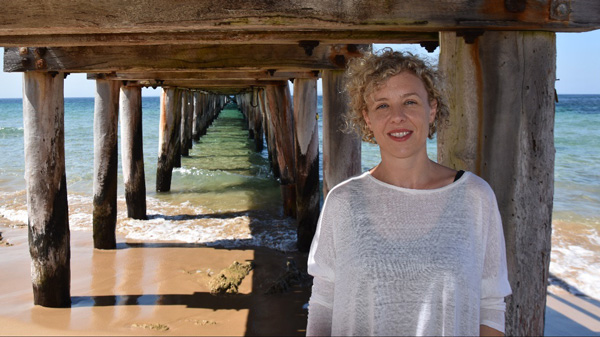
The winner of the 2017 Victorian Rural Women's Award was Kirsten Abernethy.
Kirsten works in the Victorian seafood industry, and will use the award to give women in the industry a stronger voice.
She believes women in fishing are key to promoting local sustainable seafood available in Victoria and Australia, and for sharing the pride in our resources with communities.
'Women have different perspectives to offer, and I want them to be as much a voice for the industry as men are,' Kirsten says.
Kirsten will use the award to work with women to design a skills-based training platform to build capacity, confidence and leadership in women in fishing.
Read more about the award and Kirsten's project on the Premier's website.
Kirsten was selected alongside three other Victorian finalists:
- Cath Jenkins
- Joelene Williams
- Lisa Brassington.
2016 Victorian Rural Women's Award Winner
Jessica Lye
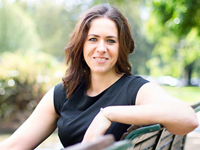
The winner of the 2016 Victorian Rural Women's Award was Jessica Lye.
Jessica is the national manager of Scientific Affairs at AUSVEG, an industry representative body for vegetable and potato growers.
Jessica has been using the prize to enhance biosecurity preparedness and encourage biosecurity champions and networks throughout Australia's vegetable and potato communities.
Watch Jessica talk about her award project in the following video.
[Jessica Lye:] Hi, I'm Jessica Lye. I'm from Victoria and I work for AUSVEG. My passion is raising biosecurity awareness in the vegetable and potato industries. I do this by speaking to growers about biosecurity best practice on-farm and filling them in about exotic plant pests.
My parents immigrated from Wales to Australia in pursuit of a healthier lifestyle and opportunities for me and my sister. I live in the outer suburbs of Melbourne and my horse Red lives just down the road. He's a real city horse and sometimes I ride him down the freeway.
After finishing a science degree at Monash University, I was a researcher. But there came a point where I wanted to step out of the lab and create more impact. So in 2014 I joined AUSVEG as the vegetable and potato biosecurity officer.
I feel completely at home working in horticulture and from the start growers in the vegetable and potato industries embraced me as one of their own. This motivates me to work as hard as I can for our growers in the biosecurity space. I love joining the dots, connecting people and ideas. I like to think strategically and big-picture — how does the jigsaw fit together to make a clear picture.
The week I started AUSVEG, the cucumber green model mosaic virus was detected in the Northern Territory. Farms were quarantined. I had growers calling me in tears. It was heartbreaking. Many affected growers were from the Vietnamese growing community and needed extra support.
There's a big disconnect between industry and government when it comes to moving forward towards similar biosecurity goals. My project will investigate the concept of shared responsibility for biosecurity, bringing back best practice ideas from New Zealand and the US. Then I will hold a biosecurity forum and Victoria, encouraging as many ESL growers as possible to attend, and I will present my findings.
This award is a game-changer. It's given me the conviction to pursue my ideas. It's my hope that the support I've received through the award will trickle out to benefit my industry and rural industries as a whole.
2015 Victorian Rural Women's Award Winner
Katie Finlay
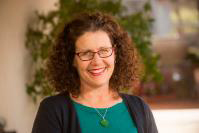
The winner of the 2015 Victorian Rural Women's Award was Katie Finlay.
Katie owns and operates the Mt Alexander Fruit Gardens, growing more than 90 varieties of organic fruit.
She has also diversified the business by writing and selling a range of information products for home fruit growers, including the Grow Great Fruit program, workshops and ebooks.
Learn more about Katie's project in this short video.
[Katie Finlay:] The purpose of my project is to help farmers get control over their rural supply chain. I think a lot of farmers are expressing that they've lost that control and I think that's one of the reasons so many farmers are leaving their farms, leaving the land.
So, my project is about encouraging farmers markets to be more often. I'd like to see a weekly farmers market in every community and I want to use Facebook as the tool where we build really strong communities around every farmer, and around each farmers market as well, to generate extra demand for extra produce from small and medium-sized farms and give a farmers a real alternative outlet for their produce. Especially their produce that's not perfect. At the moment a lot of farmers feel like there's nowhere they can get a fair price for that produce and I think farmers markets are part of the solution to that problem.
It's been a real honour to be recognised as part of these awards and I'm really grateful to RIRDC and the EcoDev department for giving me the opportunity to participate. I've learnt so much already just from meeting the other finalists and meeting the panel that interviewed us. The feedback that we got was just so useful I feel like my project has really progressed already just by having those conversations. It's been a wonderful process.
2014 Victorian Rural Women's Award Winner
Julie Aldous
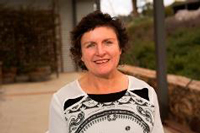
Julie Aldous's passion about career opportunities in primary industries saw the need to provide meaningful, applied learning opportunities for students.
These opportunities included:
- local land management placements
- the development of partnerships between schools and their rural communities
- promotion and increased uptake of the myriad of career pathways in primary industries within schools and further education.
Julie's project aimed to connect schools with their rural communities through the formation of sustainable partnerships so that skills and learning in food and fibre are fostered.
2013 Victorian Rural Women of the Year Award
Michelle Freeman
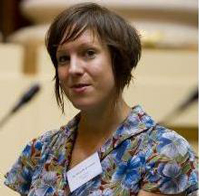
Michelle Freeman is passionate about the forestry industry, and has become involved in wider industry initiatives since studying forestry at Melbourne University and the Creswick School of Forestry.
Michelle will gain training in leadership and social media, attend the IFA National Forestry Conference 2013 and set up a workshop in conjunction with this conference to gain a better understanding of who is involved in the forestry industry.
2012 Victorian Rural Women of the Year Award
Tania Chapman
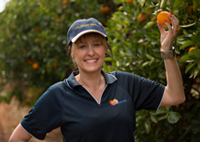
At the time of the Award, Tania Chapman was a citrus grower from outside Mildura and Chair of Citrus Australia. Tania transitioned to Chair of the citrus industry's national peak industry body within the space of six years.
Tania's project set up a national Rural Women's Leadership Forum.
The forum encourages industry leadership talent and established an ongoing Citrus Industry Future Leaders Program, to identify, encourage and develop the next generation of leadership for the citrus industry.
2011 Victorian Rural Women of the Year Award
Angela Betheras
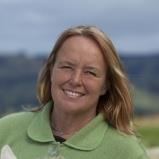
Angela Betheras is an alpaca producer and agritourism business operator from Darnum in West Gippsland.
Angela's goal from her project is to gather together other female textile artists who are also breeding alpacas, and to form a co-op, to produce a range of garments and export those to China and capture that growing middle market.
2010 Victorian Rural Women of the Year Award
Alana Johnson
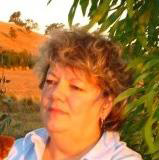
Alana Johnson is a fifth generation farmer from Benalla and founding member of Australian Women in Agriculture Inc.
Alana's project will create a new approach to agricultural philanthropy, both in Australia and internationally, and be the first national philanthropic trust in the world dedicated to the future of agriculture.